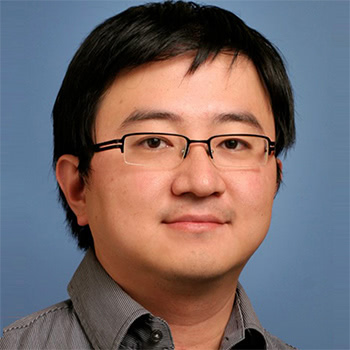| Topic | Knowing Unknowns: Disturbances and Uncertainties in Connected and Autonomous Vehicles |
| Speaker | Qi Zhu Associate Professor, ECE Department Northwestern University |
| When | August 26, 2020 – 6:00PM |
| Where | Zoom Online Presentation RSVP or call 312.861.1100 |

Qi Zhu is an Associate Professor at the ECE Department in Northwestern University. He received a Ph.D. in EECS from University of California, Berkeley in 2008, and a B.E. in CS from Tsinghua University in 2003.
Pr. Zhu’s research interests include design automation for cyber-physical systems and Internet of Things, cyber-physical security, safe and secure machine learning for CPS, and system-on-chip design, with applications in domains such as automotive electronic systems, connected vehicles, and energy-efficient buildings.
The Only Certainty is Uncertainty
Future connected and autonomous vehicles (CAVs) will operate in a highly dynamic and uncertain environment.
For best operation and maximum safety, these vehicles use an array of sensors, computation, and communication components. These technologies support not only awareness and perception, but also planning, control, and coordination.
To address the challenges of “unknowns”, engineers must understand and manage a number of variables. Unexpected component failures, malicious attacks, issues with dynamic inputs and real-time modeling, and the unpredictable actions of non-autonomous vehicles.
Join Us for a Self-Driving Ride
In this talk, Pr. Qi Zhu will discuss these challenges. Additionally, Pr. Zhu will discuss recent work, including models and methods for analyzing system safety, adaptation strategies, algorithms and tools for verifying the safety of neural network controlled systems, and a comprehensive framework for developing connected vehicle applications.
About Northwestern University
Northwester University’s Department of Electrical and Computer Engineering prides itself on both research and teaching. We create a collaborative environment in which interdisciplinary work is encouraged and students develop close relationships with faculty and get involved in cutting-edge research. Areas of focus include computational imaging, computer architecture, embedded systems, information theory, machine learning and signal processing, physical electronics, photonics, quantum devices, VLSI, and wireless communication.
Reserve your seat NOW!